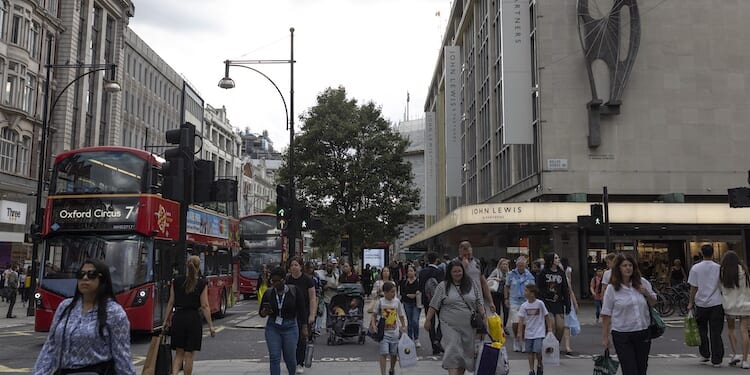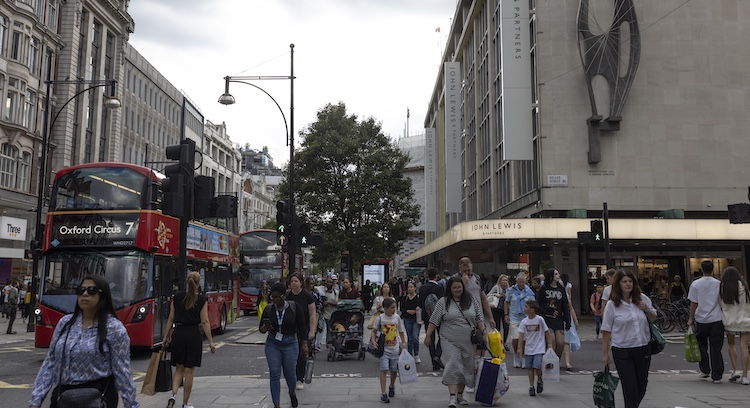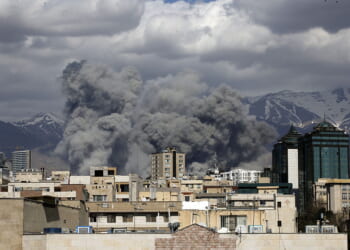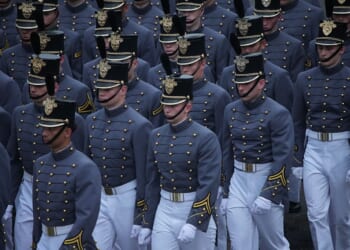The following are two headlines regarding the current BBC scandal.
The Guardian: “Tim Davie defends BBC against ‘weaponisation’ of criticism.”
The Telegraph: “BBC forced to correct two Gaza stories a week.”
There are two ways to see the crisis facing the BBC right now. One holds that it is bad that the national broadcaster is constantly publishing incorrect stories about the hot-button issue of the day. The other, that it is bad that people are criticizing the BBC for publishing false stories.
Let’s be clear: The only reason it would be unfair to attack the BBC’s integrity is because that would suggest the BBC had integrity to begin with.
This whole affair is about so much more than “media bias,” although that is an important part of it. The BBC scandal epitomizes the anti-journalistic posture of some of the most significant figures in global journalism. In terms of the collapse of Western institutional authority, this one nears the top of the list.
But first, to review. The main driver of the current scandal is not Gaza but the Beeb’s Trump coverage.
Last week, the Telegraph obtained a leaked copy of an ombudsman-like report on the BBC’s recent journalistic practices. The big headline was about the revelation that the network had spliced together three separate videos of Donald Trump taken over the course of January 6, 2021—the day of the Capitol riot—to make it look like he was ordering the riot. The video was created for a BBC production that aired just before the 2024 presidential election, prompting a whistleblower complaint.
The complaint led to the wider report, which included stunning evidence that the network had knowingly misled viewers repeatedly about its sources, to hide the ethical lapses that were driving its reporting on Gaza. Over the weekend, a Telegraph follow-up story focused on the BBC’s Arabic-language programming. The network had to make “215 corrections and clarifications over the past two years on stories that were found to be biased, inaccurate or misleading.”
The combination of the high rate of mistakes and the fact that they all go in one direction suggests the BBC’s Mideast reporting is entirely unreliable. It is also helping to fuel a massive wave of deadly anti-Semitic violence in Britain and is doing so with the state’s imprimatur, since it is the national broadcaster. It’s not a stretch to consider it guilty of defrauding its license-fee payers either, as it forces taxpayers to subsidize what has clearly crossed over from poor reporting into foreign propaganda.
The Trump part of the story suggests the problem of intentional bias is far wider than its Middle East coverage. And the hits keep coming, even as BBC director Tim Davie and chief of BBC News Deborah Turness resigned this week.
Executives at the BBC were reportedly ignoring internal dissent over its coverage of transgenderism. Women at the BBC objected to the portrayal of biological men as women and the cheerleading the network was doing for men playing—and undermining—women’s sports. Their objections were dismissed.
The culture at the top of the BBC, then, is not one of carelessness but of total disregard for the facts. From politics to sports to war, the rot appears to have infected the whole range of BBC coverage.
Yet the targets of all this very fair and substantial criticism have a different theory of the case. “I do hear everyone when we have to be very clear and stand up for our journalism,” Davie told the BBC staff on his way out. “We are in a unique and precious organization. I see the free press under pressure. I see the weaponization. I think we’ve got to fight for our journalism. I’m really proud of our work.”
Proud of… what, exactly? Davie chalked up the criticism of the BBC’s massive and widespread apparent violation of journalistic ethics to “our enemies,” as if a documented investigation is some kind of tabloid smear campaign. Despite calls for reform, Davie said: “We are the very best of what I think we should be as a society and that will never change.”
That really is the problem, isn’t it? Averaging two corrections a week in its coverage of the world’s top story for two years is “the very best” they can be? To Davie, the answer is yes. Because Western journalism has been consumed with rooting out objective reporting for years now, and this is the result. What matters to these figures isn’t what’s true but what helps the “right” side “win.”
Meanwhile one would be crazy to put one’s trust in any institution that behaves this way. The problem is that so many of them behave this way. Western leaders love to convince themselves that society is being dragged down by the populist hordes rising from the streets. But the fish rots from the head. So, too, does Western Civilization.


















